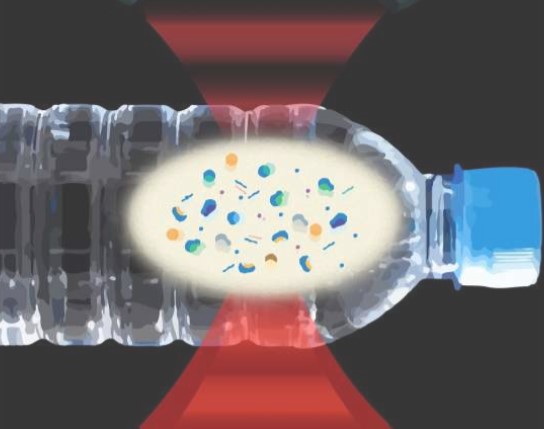by Khan Muzamil
SRINAGAR: A recent study by scientists at Columbia University and Rutgers University has revealed a shocking truth about bottled water, it may contain significantly higher levels of minuscule plastic particles than previously estimated. This research, published in the Journal Proceedings of the National Academy of Sciences, exposes a previously uncharted world of Nano plastics that could have detrimental effects on human health.

Beizhan Yan, an environmental chemist at Columbia University’s Lamont-Doherty Earth Observatory, as per a report in the Economic Times said, “Previously this was just a dark area, uncharted. Toxicity studies were just guessing what’s in there. This opens a window where we can look into a world that was not exposed to us before.”
The study found that one litre of bottled water, equivalent to two standard-size bottles, contained an average of 240,000 plastic particles. These particles belonged to seven different types of plastics, with 90% identified as Nano plastics and the remaining as microplastics. This is a tenfold increase in the number of plastic particles previously found in bottled water, and in some cases, more than 100 times higher.
The study also raises concerns about the potential health risks of these tiny plastic particles. Nano-plastics are 1,000 times smaller than the average width of a human hair, and their small size allows them to potentially navigate through the tissues of the digestive tract or lungs and enter the bloodstream.
Wei Min, Biophysicist at Columbia University, as per a TIME report, said “There is a huge world of Nano plastics to be studied. Even if Nano plastics make up 90% of the number of plastic particles found in bottled water, they make up far less in mass. It’s not the size that matters. It’s the numbers, because the smaller things are, the more easily they can get inside us.”
While there is limited research on the effects of Nano plastics once they enter the bloodstream, concerns arise from the potential role they may play as carriers for harmful chemicals used in plastic production. These chemicals, such as bisphenols, phthalates, dioxins, organic contaminants, and heavy metals, pose known risks to human health, including an increased risk of cancer and impacts on key organs.
The study’s findings highlight the need for further research on the health risks of Nano plastics and the potential sources of these particles in bottled water. The study also raises questions about the safety of bottled water as a source of drinking water and the environmental impact of plastic pollution.
It is important to note that the bottled water industry has disputed the findings of this study, arguing that there is no scientific consensus on the potential health risks of Nano plastics. However, the study’s findings are a wake-up call for the need to reduce our reliance on single-use plastics and to find more sustainable alternatives.















